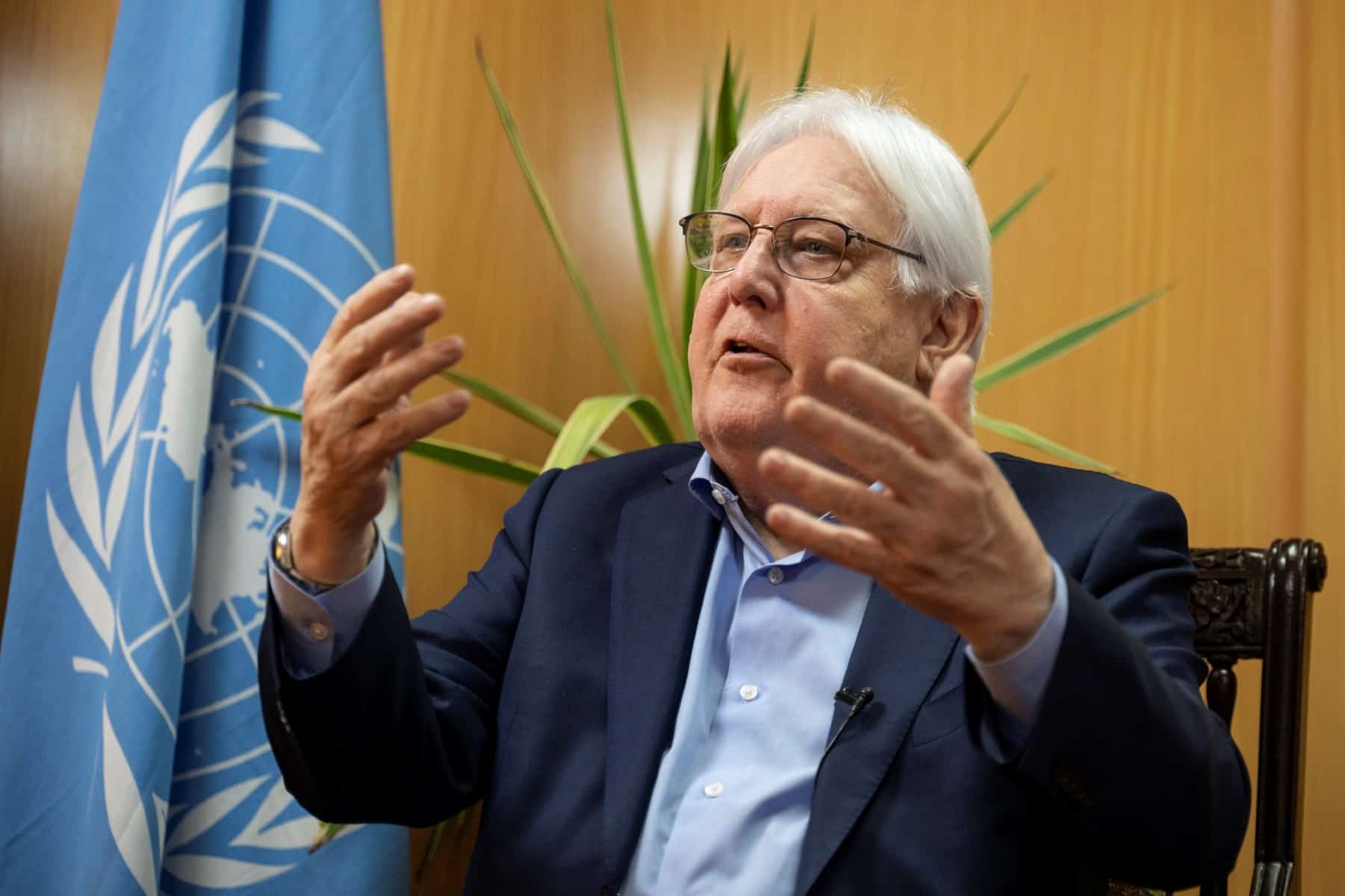GENEVA, SWITZERLAND – The United Nations called Wednesday for security guarantees at “the highest level” to ensure desperately needed aid deliveries in conflict-torn Sudan, after six trucks carrying food aid to the Darfur region were looted.
The United Nation’s top humanitarian official Martin Griffiths insisted on the need “to be sure that we have the commitments publicly, clearly given by militaries, to protect humanitarian systems to deliver”.
“We will need to have agreement at the highest level and very publicly,” he told journalists via video link from Sudan.
Griffiths arrived in Port Sudan on the Red Sea coast early Wednesday on an urgent mission to find ways to bring relief to the millions of Sudanese affected by the conflict that erupted nearly three weeks ago.
Griffiths said he had been informed by the UN’s World Food Program that six trucks bringing aid to the country’s western Darfur region had been “looted en route” Wednesday, “despite assurances of safety and security”.
He said the UN had a plan for delivering the aid and supplies needed to address the dire situation.
But “we need access. We need airlifts. We need supplies that don’t get looted”, he insisted.
“Looting of humanitarian stocks across the country has been a very sad phenomenon of these past weeks.”
His comments came a day after neighboring South Sudan announced that the warring sides had agreed “in principle” to a seven-day ceasefire.
It follows several shorter truces that have been repeatedly violated.
Deadly violence broke out on April 15 between Sudan’s de facto leader Abdel Fattah al-Burhan, who commands the regular army, and his deputy turned rival Mohamed Hamdan Daglo, who commands the paramilitary Rapid Support Forces (RSF).
“Even when there is no formal natural ceasefire, we will still require agreements and arrangements to allow for movement of staff and supplies,” Griffiths said.
At least 528 people have been killed and nearly 4,600 wounded, according to the latest health ministry figures, which are likely to be incomplete.
The fighting has spurred over 100,000 people to flee Sudan into neighboring countries, while more than 330,000 others have been displaced inside the conflict-ravaged country, according to the UN.
“I don’t think we’ve seen the end of people seeking safety in Sudan and in its neighboring countries,” Griffiths said.
“We need to provide aid inside Sudan to encourage people not to need to leave, and we need to be ready in those neighboring places to receive them.”
To do so, he said, “we need to be very, very clear about commitments made to ensure the safety and movement of supplies”.
Griffiths also called for the lifting of “bureaucratic impediments to delivering assistance”, pointing out that even he had had difficulty obtaining visas for his trip.
“Particularly international NGOs said to me today they really need help on this… We need to get through supplies coming in quickly.”
He also lamented a dire lack of funding for the massive humanitarian operation.
Even before the latest fighting began, the UN had appealed for $1.7 billion for aid for Sudan this year, which so far has been funded at just $200 million.

